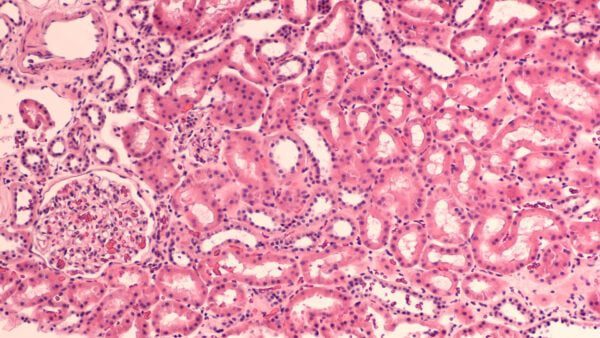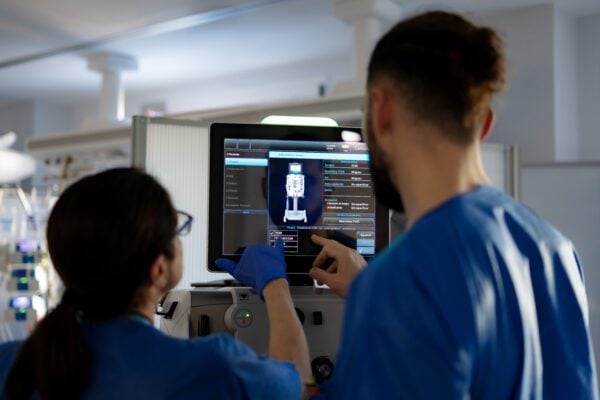A team of physician-scientists at Indiana University School of Medicine has made progress in mapping kidney cells.
The progress could eventually lead to more accurate diagnosis and treatment of kidney disease.
The study, recently published in Science Advances, is part of a larger collaborative project led by IU to identify and categorize the diverse cell types that make up the human kidney.
Dr. Tarek M. Ashkar (El-Achkar), the Terence P. Kahn Professor of Nephrology at IU School of Medicine and the study’s corresponding author, said the findings move research closer to precision medicine in kidney care.

“Understanding the spatial organization of the kidney cell populations and their interaction within molecular neighborhoods will allow us to define a better timeline of kidney disease based on molecular staging,” Ashkar said. “This, in turn, will uncover better biomarkers and targets for therapy that reflect the correct pathology at the right stage of the disease. This will lead to treating the right patient at the right time with the right medicine.”
The researchers identified two key subpopulations of proximal tubule cells: one regenerative type abundant in healthy kidneys and another with a genetic marker that indicates disease. By measuring how much of each type is present, the team can better map the level of disease in kidney tissue.
Kidney disease remains a significant public health challenge.
According to the U.S. Centers for Disease Control and Prevention, chronic kidney disease affects about 14% of adults in the country, many of whom are unaware they have it. For those whose kidneys fail, treatment typically requires dialysis or transplant, both of which drastically impact quality of life.
Ashkar said the work reveals that kidney cells are far more complex than once believed. The research aims to group cell types into what scientists call “molecular neighborhoods” for study in hopes of developing strategies to prevent permanent damage.

“The goal of this large effort is to define the molecular timeline of disease better and discover high-value, precise therapeutic targets that achieve precision medicine for kidney disease,” Ashkar said.
The Kidney Precision Medicine Project is a nationwide consortium of universities, scientists and patient advocates, including IU, Johns Hopkins University and Yale University, that helped fund the study and provided patient biopsy tissue.
Ashkar emphasized the importance of participants who made the research possible.
“We refer to our participants as heroes because they altruistically donate their kidney biopsy and share details about their disease so that we can understand kidney disease with the hope of finding better treatments and a cure,” he said.
This reporting is made possible by a grant from the Indianapolis African-American Quality of Life Initiative, empowering our community with essential health insights. https://iaaqli.org/
Contact Health & Environmental Reporter Hanna Rauworth at 317-762-7854 or follow her on Instagram at @hanna.rauworth.
Hanna Rauworth is the Health & Environmental Reporter for the Indianapolis Recorder Newspaper, where she covers topics at the intersection of public health, environmental issues, and community impact. With a commitment to storytelling that informs and empowers, she strives to highlight the challenges and solutions shaping the well-being of Indianapolis residents.









